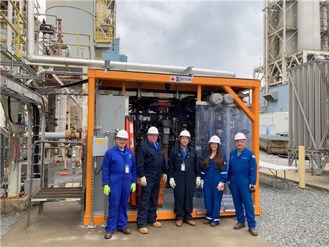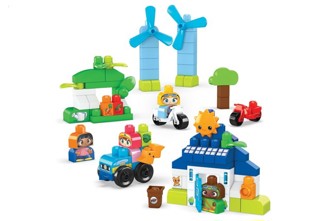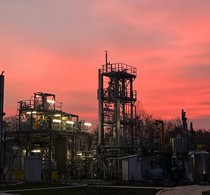The downstream rundown: In case you missed it 4/8
In case you missed any downstream news, this piece will give you a summary of some of the top stories from last week.
Petroperú selects Honeywell Forge Solution to support employee training
Honeywell announced that Petroperú, has implemented Honeywell Forge Workforce Competency solutions to train its industrial workforce for safer and more efficient operations. Petroperú is investing in digital transformation as a key part of the refinery modernization megaproject at its 100+ year old Talara Refinery. The company has implemented Honeywell Forge Workforce Competency to provide realistic training simulations, on-demand desktop training and customized competency learning.
Suedzucker's annual profit jumps nearly 40% on strong bioethanol performance
Suedzucker posted a rise of almost 40% in full year operating profit as improved sugar and bioethanol markets boosted earnings.
Group operating profit in the full financial year 2021/22 to the end of February rose to 330 MM euros ($362.37 MM) from 236 MM euros in the previous year, the company said in an advance release of its annual results. It had previously forecast full-year group operating profit of between 320 MM and 380 MM euros.
Compact Membrane Systems, Braskem start Optiperm demonstration plant

Compact Membrane Systems (CMS) and Braskem announced that the pilot demonstration of CMS's Optiperm technology for light olefin paraffin separation has started up at Braskem's Marcus Hook facility.
Optiperm is designed to increase olefin production efficiency while decreasing waste streams, lowering carbon emissions and reducing total energy usage. The modular nature of membranes allows olefin recovery from small and large process streams alike, debottlenecking processes and leveraging existing infrastructure in a more energy-efficient manner. CMS and Braskem recognize that capturing olefins from unused hydrocarbon process streams is essential to decreasing environmental impact while continuing to create the chemical building blocks for plastic resins and chemical products for diverse customer segments, such as healthcare and hygiene, food packaging, construction, manufacturing, automotive and agribusiness.
Indian refiners plan to limit Saudi oil purchases in May
At least two Indian refiners plan to buy less Saudi oil than usual in May, after the kingdom raised the official selling price to record highs for Asia, as India increases purchases of cheap Russian crude. India, the world's third biggest oil importer and consumer, has been hit hard by rising crude values, with pump prices in some states touching record highs. Saudi Aramco, the world's top oil exporter, has raised crude prices for all regions, with those to Asia hitting all-time highs.
Chevron Joins Global Centre for Maritime Decarbonization
Chevron announced an agreement to join the Global Centre for Maritime Decarbonization (GCMD). Chevron’s involvement aims to help support GCMD’s efforts to develop potentially scalable lower carbon technologies – including those that enable the use of ammonia as a maritime fuel – and the commercial means to enable their adoption.
DHL Group, ABB to partner on carbon reduction goals
Deutsche Post DHL Group (DPDHL) has joined ABB’s Energy Efficiency Movement to reinforce its commitment in reducing its carbon footprint. This is an important step in DPDHL’s initiative to lead the logistics industry towards a greener and more sustainable future, with a commitment to invest €7 B by 2030 to reduce its GHG emissions.
Mattel to incorporate SABIC’s certified renewable polymers globally

SABIC announced a collaboration with Mattel to incorporate certified renewable polymers from SABIC’s TRUCIRCLE program across Mattel’s products offering. The first Mattel toy products to enter the market in 2022 using certified renewable SABIC polypropylene polymers will be from MEGA and Matchbox, with more to follow.
GPS Group, Rietlanden Terminals complete a transfer of NOx emission rights
GPS Group and Rietlanden Terminals announce that they have successfully completed a transfer of nitrogen oxides (NOx) disposition rights.
The transfer, now confirmed through a permit that has become irrevocable, transfers such rights from Rietlanden Terminals to GPS Amsterdam and thereby supports GPS’s expansions including the recently completed rail project and bioethanol storage, which are supportive of the energy transition towards more sustainable energy products and transport modalities.
U.S. East Coast jet fuel costs soar on shortage fears
Jet fuel prices are soaring on the U.S. East Coast with buyers anticipating a worsening shortage as supply dwindles amid sanctions on Russian energy exports.
The East Coast largely relies on shipments on the Texas-to-New Jersey Colonial Pipeline for refined products, as well as imports from Europe. However, Europe is dealing with its own supply strains, so distillate exports to the U.S. East Coast—also known as PADD 1—are down nearly 60% on a year-on-year basis, according to Refinitiv Eikon data.
NextChem completes Italy’s first demonstration plant for chemical recycling of PET and polyester from textiles

NextChem, Maire Tecnimont's energy transition technology company, has completed the construction of the first demonstration plant in Italy for the chemical recycling of PET and polyester from textiles, as part of the European Union’s DEMETO project. The plant is located in Chieti, in the Abruzzo Technology Park.
The depolymerization technology adopted, based on the reaction of alkaline hydrolysis with the use of microwaves, allows the plant to chemically recycle PET and polyester textile fiber waste and obtain pure monomers to produce new polymers.






Comments